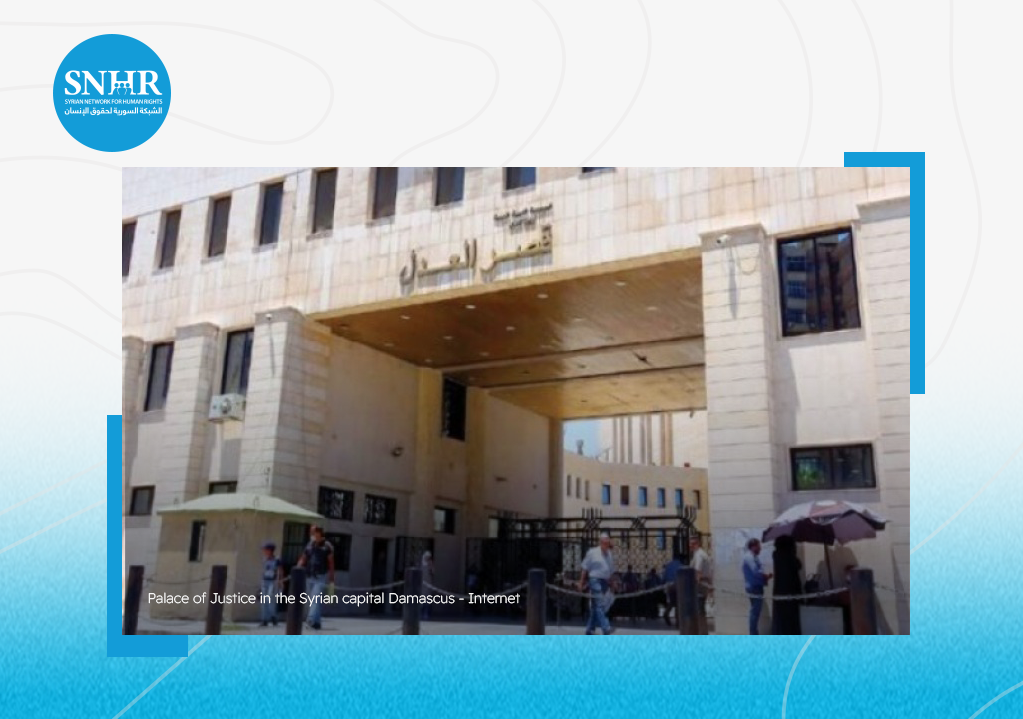
Available In
The Hague – The Syrian Network for Human Rights (SNHR) today released a statement stressing that the ousted Assad regime committed innumerable grave crimes, including crimes against humanity, that have affected and continue to affect millions of Syrians. Tens of thousands of regime personnel took part in the commission of these violations. For 14 years, the statement adds, SNHR has documented violations on a daily basis, building a comprehensive database containing the details of millions of documented incidents.
The statement further reveals that SNHR has also worked to identify the individuals responsible for these crimes, creating a list containing about 16,200 names of some of those involved or implicated, including:
- 6,724 members of the former regime’s formal military and security forces.
- 9,476 members of the auxiliary forces, including militias and supporting groups, which fought alongside the regime’s formal forces.
The statement notes that the accountability process faces immense challenges, which necessitate intensifying and focusing legal and judicial efforts on holding accountable first- and second-tier senior leadership officials from the former regime’s military and security apparatus, since these were the figures primarily responsible for devising and approving the plans for these crimes who directly supervised their commission.
Furthermore, the statement notes that, simultaneously, avenues must be created to enable all victims to file lawsuits against the aggressors who were directly responsible for their suffering regardless of these figures’ rank or position, whether they played a supervisory role or directly perpetrated the crimes.
Multi-level accountability
In addition to military and security personnel, however, there are other figures whose involvement and support for the regime took different forms. These include actors, artists, writers, and politicians who supported and promoted the crimes of the deposed regime, including by encouraging and instigating the killing of Syrians and promoting actions that increased the Syrian people’s already terrible suffering, to varying degrees.
As such, the statement stresses that these individuals’ actions must be tried before the law as part of the transitional justice process.
Media’s role in promoting justice
The statement notes that the decision of some TV channels and media figures to platform and interview prominent figures notorious for their fanatical support of the Assad regime has caused rage and disgust among thousands of victims who have voiced their frustration on social media. After speaking with some of these victims, SNHR has concluded that, in addition to the need for punishment for the crimes of the former regime’s army and security personnel, those civilian figures and propagandists who were involved in supporting and promoting the deposed regime, must take the following steps before making any media appearances or participating in public affairs, whether political, social, or creative in nature
Steps required from those who voiced supported for Assad but were not involved in crimes against humanity and war crimes
- Publicly and directly apologize
Each of these figures must publish a sincere and public apology on their various personal channels, including their social media accounts, which must include:
- Acknowledgment of their responsibility for supporting the Assad regime’s crimes.
- Sincere expressions of remorse.
- Explicit acknowledgment of the consequences of their actions.
- A pledge to never repeat these actions.
These apologies must have a sincere tone and manner demonstrating humility and remorse for supporting a murderous, dictatorial regime that committed barbaric crimes.
- Contribute to reparations
- Provide financial support for the victims.
- Contribute to rebuilding the affected communities.
- Fund survivor initiatives and educational programs for victims’ families.
- Volunteer to provide services for the victims and their families.
- Contribute to uncovering the truth
- Provide their testimonies to truth commissions.
- Support educational and awareness campaigns that shed light on their own actions and the harm they caused.
- Call for holding those directly responsible for crimes and violations accountable.
- Refrain from accepting leadership positions
These figures must pledge to never accept any leadership position in future Syrian government or in public affairs.
- Stop appearing on the media
Refuse to participate in interviews or appear on any public media or at cultural forums before taking the steps outlined above.
Responsibility of media outlets and cultural and artistic institutions
The statement also stresses that media outlets, as well as cultural and artistic institutions, must uphold the standards of justice and accountability. In that, they must:
- refuse to interview, host or platform figures who supported the Assad regime before ensuring that they had taken all of these steps.
- Media outlets and cultural and artistic institutions must demonstrate a sense of responsibility for the victims. Platforming these figures without any such prior atonement sends a negative and insulting message to millions of victims by implying that these outlets are turning a blind eye to those figures’ previous statements and actions or downplaying their consequences.
- The act of condemning the deposed regime’s crimes following its collapse does not in itself relieve these individuals from their legal and ethical responsibility for their earlier support or promotion of those crimes. As such, these figures must at least take the five steps outlined above.
- Media institutions have a responsibility to shun any attempt to whitewash or be parties to whitewashing of the image of any figures involved in supporting the regime’s crimes, and to uphold ethical standards that promote justice and accountability.
In conclusion, the statement calls on media outlets to play their role in a comprehensive accountability process, rather than being instrument to rehabilitating perpetrators or supporters of the former regime’s crimes.


